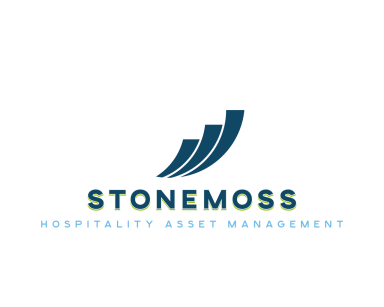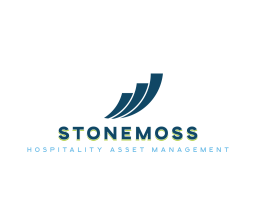Environmental, Social & Governance
ESG for us:
As part of our commitment to contributing to society and the planet, Stonemoss is working towards Planet Mark Business Certification.
The internationally recognised certification demonstrates our commitment to measuring and reducing our carbon emissions, signifying our credible engagement with environmental, social, and governance (ESG) standards.
Alongside compliance with ISO 14001 and ISO 50001 requirements, Planet Mark certification helps us contribute to nine United Nations Sustainable Development Goals (UN SDGs) and address 19 SDG targets. The aim of these global goals and targets is “peace and prosperity for people and the planet” – while tackling climate change and working to preserve oceans and forests.
Robust data collection and reporting will include Scope 1, Scope 2, and core Scope 3 emissions, providing a holistic view of our carbon footprint.
The detailed, third-party verified carbon report will enable us to set credible benchmarks and annual emission reduction targets, providing a structured approach to developing our ESG goals.
We will renew and retain our Planet Mark certification through quantifiable reductions in carbon emissions on an annual basis after year one.
With Planet Mark, we will also measure our social value to provide a more holistic view of our sustainability progress.
Our Commitment:
Environmental
- Energy Efficiency – Use of energy-efficient appliances, LED lighting in our workspace, and regular equipment maintenance to optimise energy consumption.
- Waste Reduction – Aspiring to become a paperless business and promoting responsible recycling and waste disposal.
- Sustainable Sourcing – Prioritising partners and suppliers with environmentally responsible practices and materials.
- Transportation Optimisation – Encouraging carpooling and the use of public transport.
- Carbon Impact – Minimising large downloads, high-resolution pictures, videos, large attachments, and excessive use of email CCs.
Social
- Diversity and Inclusion – Implementing inclusive hiring practices, providing unconscious bias training, and promoting equal opportunities for all employees.
- Employee Wellbeing – Offering flexible work arrangements, promoting work-life balance, and providing health and wellness programmes.
- Community Engagement – Supporting local charities, volunteering initiatives, and engaging with the surrounding community.
- Ethical Conduct – Establishing a strong code of ethics, anti-bribery and anti-corruption policies, and reporting mechanisms for concerns.
Governance
- Risk Management – Identifying and mitigating potential ESG risks, including environmental and social impacts.
- Transparency and Reporting – Publishing ESG reports detailing key performance indicators and progress towards sustainability goals.
- Stakeholder Engagement – Engaging with customers, suppliers, investors, and communities to understand their ESG expectations.
ESG for our Clients:
Real estate investors, owners, and operators are increasingly embedding ESG considerations into every stage of the investment lifecycle—from due diligence to acquisition, leasing to asset management, and ultimately to exit strategy. Likewise, opportunities to report and disclose ESG performance at asset, portfolio, and institutional levels are growing, with regulatory disclosure requirements and pressures also rising.
More and more, we see clients integrating ESG into every stage of a building’s lifecycle—enabling them to mitigate risk, identify value-creation opportunities, transform their assets, and future-proof their investments.
As ESG factors become increasingly integral to investment decisions, our clients are turning to internationally recognised certifications that demonstrate credible engagement with ESG criteria, including carbon emissions, energy efficiency, waste management, supply chains, environmental impact, community engagement, and employment policies.
Working with real estate sector ESG specialist Mission: Net Zero, our clients can earn certifications for their assets—leaving them better positioned to navigate evolving market dynamics and meet stakeholder expectations.
These include, but are not limited to:
- CRREM – Monitors the energy performance of an asset, benchmarks its performance, and assesses its ‘stranding risk’ due to regulatory changes or shifts in energy costs.
- Energy Performance Certificate (EPC) – Includes recommendations on how to improve the energy performance of a building, with estimated payback periods, helping reduce running costs and improve net operating income.
- BREEAM – Provides a framework enabling property stakeholders to drive sustainable improvements in the operational performance of their assets.
- LEED – A globally recognised green building rating system.
- WELL and Fitwel – Focus on health and wellbeing in buildings.
Certifications also exist to validate ESG achievements in the sustainable management and operation of buildings. In partnership with Mission: Net Zero, we develop roadmaps offering practical, strategic frameworks that work towards internationally recognised certifications, including but not limited to:
- Green Key and Green Tourism – International sustainability certifications granted to thousands of establishments worldwide.
- EarthCheck – A leading scientific benchmarking and certification programme aligned with international standards including ISO 9001, ISO 14001, ISO 50001, ISO 26000, and the Global Reporting Initiative (GRI).
Choosing the most appropriate ESG strategy for a client involves considering their sustainability objectives, regional relevance, and operational requirements.
Please contact us to discuss your specific requirements.

We need your consent to load the translations
We use a third-party service to translate the website content that may collect data about your activity. Please review the details in the privacy policy and accept the service to view the translations.

